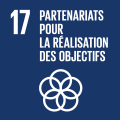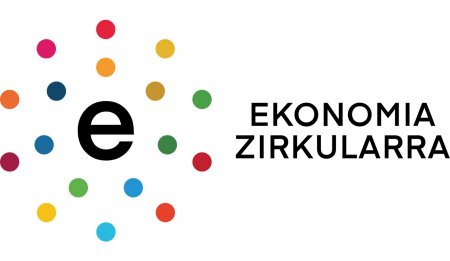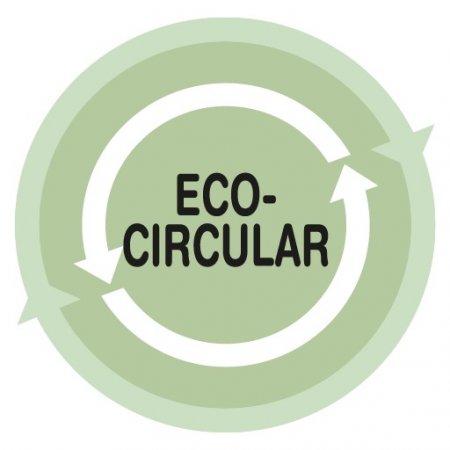
Nuevas obligaciones de reporting en sostenibilidad corporativa
Implicaciones empresariales de la nueva directiva sobre Sostenibilidad Corporativa
Description
El Curso de Verano pretende exponer y analizar las nuevos aspectos e implicaciones empresariales relativas a la nueva directiva sobre Sostenibilidad Corporativa, además de presentar como puede ser la futura transposición de la directiva a la norma española.
Con la Directiva 2014/95/UE en lo que respecta a la divulgación de información no financiera e información sobre diversidad, se inició el camino a la obligatoriedad por parte de grandes corporaciones a revelar información social y medioambiental junto con la información financiera tradicional. Esta directiva generó la ley 11/2018 en materia de información no financiera y diversidad de obligado cumplimiento en España.
Tras un proceso de consultas y bajo la propuesta del European Financial Reporting Advisory Group (EFRAG), la Comisión Europea va a proceder a emitir una nueva directiva, con el objetivo de mejorar la trasparencia y relevancia de la información social y medioambiental corporativa. Uno de los aspectos más novedosos de la normativa es una mayor concreción del concepto materialidad de la información sobre sostenibilidad, siendo este aspecto uno de los que el curso pretende ahondar en profundidad.
El Curso tiene una estructura muy diversa. Por un lado, dos de las comunicaciones serán llevas a cabo por dos personas pertenecientes a la administración pública responsables de normativa, tanto a nivel nacional (ICAC, dependiente del Ministerio de economía) como internacional (EFRAG, organo consultivo de la Comisión Europea). Por otro lado, participaran académicos expertos en la información sobre sostenibilidad, que profundizarán sobre los nuevos conceptos, y finalmente profesionales relacionados con la auditoria, la elaboración de la información por parte de las compañias e instituciones de inversión, que presentarán su visión e inquietudes sobre la nueva norma.
Objectives
Conocer la nueva directiva sobre Sostenibilidad Corporativa y la futura norma nacional.
Analizar las futuras implicacciones que va a tener en diferentes colectivos: empresariales, instituciones de inversión, auditores,...
Analizar el concepto de materialidad de la información sobre sostenibilidad.
Activity directed to
- University student
- Professionals
In collaboration with
Program
11-09-2024
Registro
Institutional Opening session. Speaking order:
- José Mariano Moneva Moneva | Universidad de Zaragoza - Catedrático IP Grupo de referencia socio economía y sostenibilidad: Contabilidad Medioambiental, Economía Circular
- Laura Vozmediano Sanz | UPV/EHU - Vicerrectora de Grado e Innovacion Educativa
- Santiago Durán Dominguez | Instituto de Contabilidad y Auditoria de Cuentas, Ministerio de Economía - Presidente
“Marco regulatorio de la Directiva sobre Sostenibilidad Corporativa “
- Gema Sanchez-Danes | EFRAG - Head of Secretariat - Sustainability Reporting (ESRS) (Participation by zoom)
“La futura transposición de la directiva a la norma española“
- Santiago Durán Dominguez | Instituto de Contabilidad y Auditoria de Cuentas, Ministerio de Economía - Presidente
Break
Round table: “Organizaciones empresariales, inversores, auditoria : Nuevos retos y mejoras que presenta la nueva directiva a la hora de elaborar el estado sobre Sostenibilidad Corporativa“
- José Mariano Moneva Moneva | Universidad de Zaragoza - Catedrático (Moderator)
- Ramón Pueyo Viñuales | KPMG - Partner, Head of Sustainability and Corporate Governance Services (Participation by zoom)
- Gregorio Pedro Gil Ortiz | AECA/ICAC - Focus Group AECA sobre Información de Sostenibilidad–ESG y representante en el Comité Consultivo de Sostenibilidad del ICAC
- Salvador Marin Hernández | EFAA for SMEs - Presidente
“La triple materialidad de la información sobre sostenibilidad“
- Carlos Larrinaga | Universidad de Burgos - Catedrático (Council del Centre for Social and Environmental Accounting Research) (Participation by zoom)
- Igor Álvarez Etxeberria | UPV/EHU - Pleno, IP. Grupo de investigación: Economía circular, desempeño empresarial y la consecución de los objetivos de desarrollo sostenible
“Taller: Como realizar una mapa de la materialidad de la información sobre sostenibilidad“
- Mercedes Luque Vilchez | Universidad de Cordoba - Profesora Titular, Secretariat Cluster SMEs of the Project Task Force on European Sustainability Reporting Standards
Directors

Igor Álvarez Etxeberria
UPV/EHU, Full Professor
Igor Alvarez Etxeberria is associated professor (full professor accredited) of accounting at the University of Basque Country. He also member of the Steering Committee of EMAN Europe. His interests are the role of business in sustainable development, social and environmental reporting, carbon accounting, Biodiversity accounting and CSR performance. He has published in a number of journals that include Accounting, Business Strategy and Environment, CSR and Environmental management, Ecological Economics, Journal of Cleaner Production, Sustainable Development, Supply Chain management and International Journal, Spanish Accounting Review and Spanish Journal of Finance and Accounting.

José Mariano Moneva Moneva
Universidad de Zaragoza
Jose M. Moneva is a professor at the University of Zaragoza and Dean of the Faculty of Economics and Business. He has been director of the BSH Electrodomésticos Chair in Innovation and coordinator of the CSR committee of AECA, the Spanish business accounting and administration association. He has also been a member of the Global Reporting Initiative (GRI) working party in its 2002 version and of the Management Committee of the European Sustainability Reporting Association (ESRA). He is currently part of the Spanish circular economy observatory. His main lines of research are related to social and environmental accounting, sustainable finance, sustainability and corporate social responsibility information and the circular economy.
Speakers

Igor Álvarez Etxeberria
UPV/EHU, Full Professor
Igor Alvarez Etxeberria is associated professor (full professor accredited) of accounting at the University of Basque Country. He also member of the Steering Committee of EMAN Europe. His interests are the role of business in sustainable development, social and environmental reporting, carbon accounting, Biodiversity accounting and CSR performance. He has published in a number of journals that include Accounting, Business Strategy and Environment, CSR and Environmental management, Ecological Economics, Journal of Cleaner Production, Sustainable Development, Supply Chain management and International Journal, Spanish Accounting Review and Spanish Journal of Finance and Accounting.

Santiago Durán Dominguez

Gregorio Pedro Gil Ortiz
Gregorio Gil es licenciado en Ciencias Económicas y Empresariales por la Universidad de Sevilla. Ha desarrollado su carrera profesional en el sector bancario durante más de 30 años, estando involucrado, a través de distintos puestos y responsabilidades, con las normas de información financiera a nivel nacional e internacional (IFRS/US GAAP); la auditoría de cuentas; y la preparación de informes (financieros y no financieros) a distintos supervisores de los mercados de valores tanto de España como de Estados Unidos y México.Es Experto Contable Acreditado ECA® por AECA. Además, es Analista Financiero Certificado y Analista de Sostenibilidad CESGA® por la Federación Europea de Asociaciones de Analistas Financieros (EFFAS). Actualmente, preside la Comisión de Corporate Reporting del Instituto Español de Analistas.

Carlos Larrinaga
Universidad de Burgos
Carlos Larrinaga is professor of accounting at the University of Burgos, Spain. He also is associated to the Centre for Social and Environmental Accounting Research, University of St Andrews. Formerly he served at the University of Seville, and at Carlos III University. His interests are the role of business in sustainable development, and particularly the normativity of social and environmental reporting. In the last years he is studying the interplay between accounting, modernity and the Anthropocene from historical, coloniality and ecological perspectives. He has published in a number of journals that include Accounting, Organizations and Society, Accounting, Auditing and Accountability Journal, Critical Perspectives on Accounting and European Accounting Review. He also serves in the editorial board of various journals and is Associate Editor of the European Accounting Review.

Mercedes Luque Vilchez

Salvador Marin Hernández

José Mariano Moneva Moneva
Universidad de Zaragoza
Jose M. Moneva is a professor at the University of Zaragoza and Dean of the Faculty of Economics and Business. He has been director of the BSH Electrodomésticos Chair in Innovation and coordinator of the CSR committee of AECA, the Spanish business accounting and administration association. He has also been a member of the Global Reporting Initiative (GRI) working party in its 2002 version and of the Management Committee of the European Sustainability Reporting Association (ESRA). He is currently part of the Spanish circular economy observatory. His main lines of research are related to social and environmental accounting, sustainable finance, sustainability and corporate social responsibility information and the circular economy.

Ramón Pueyo Viñuales

Gema Sanchez-Danes
Registration fees
| Face-to-face | Until 31-05-2024 | Until 11-09-2024 |
|---|---|---|
| 25,00 EUR | 33,00 EUR | |
| - | 47,00 EUR | |
| - | 40,00 EUR | |
| - | 33,00 EUR |
| Live online | Until 31-05-2024 | Until 11-09-2024 |
|---|---|---|
| 25,00 EUR | 33,00 EUR | |
| - | 47,00 EUR | |
| - | 40,00 EUR | |
| - | 33,00 EUR |
Venue
Miramar Palace
Pº de Miraconcha nº 48. Donostia / San Sebastián
Gipuzkoa
Miramar Palace
Pº de Miraconcha nº 48. Donostia / San Sebastián
Gipuzkoa
Sustainable development goals
Agenda 2030 is the new international development agenda approved in September 2015 by the United Nations. This agenda aims to be an instrument to favour sustainable human development all over the planet, and its main pillars are the eradication of poverty, a reduction in equality and vulnerability and fostering sustainability. It is a unique opportunity to transform the world up to 2030 and guarantee human rights for all.

5 - Gender equality
Achieve gender equality and empower all women and young girls. Key issues: the end of all forms of discrimination and violence, recognition of unpaid care and domestic work, shared responsibility, equal opportunities, full and effective participation in reproductive rights, equal rights vis-à-vis economic resources, access to land and other assets and ownership.
More information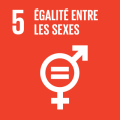
8 - Decent work and economic growth
Foster sustained, inclusive and sustainable economic growth, full and productive employment and decent work for everyone. Key issues: decent work, full and productive employment, entrepreneurship, fostering micro-companies and SMEs, employment rights, safe working environments, youth employment, equal opportunities and pay, strengthening of financial institutions, and breaking the link between economic growth and the degradation of the environment.
More information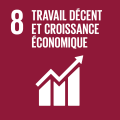
12 - Responsible consumption and production
Guarantee sustainable modalities of consumption and production. Key issues: sustainable management and efficient use of natural resources, reduction of chemical particles released to the atmosphere, water and soils, reduction of waste products, recycling, reuse and reduction, sustainable practices, sustainable public procurement, sustainable lifestyles, rationalisation of inefficient subsidies for fossil fuels.
More information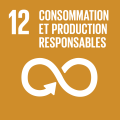
17 - Partnerships for the goals
Strengthen the means of implementation and revitalise the World Alliance for Sustainable Development. Key issues: mobilisation of resources, 0.7% of GDP for official overseas development aid, finances, cooperation in technology and innovation, ecologically rational technologies, skills building, universal and multilateral trade system, coherence on the legislative and institutional levels, availability of data, supervision, indicators and accountability.
More information